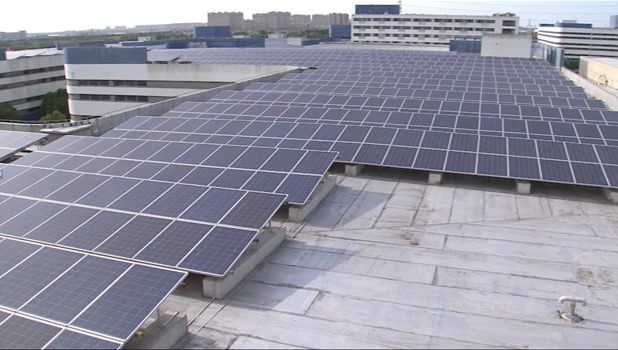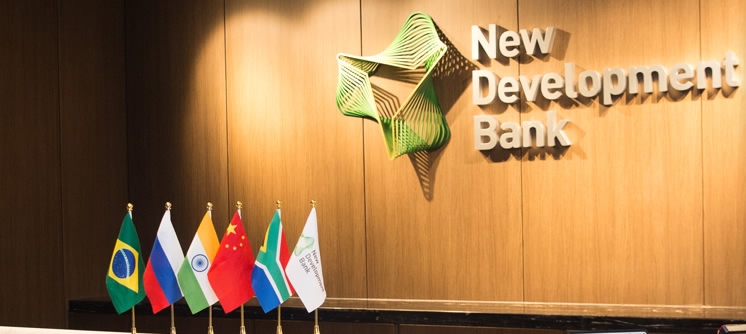By CGTN's Yang Chengxi
Solar panels sit on a rooftop at the Shanghai Lingang industrial zone. The company that made them, Hongbo New Energy (HNE), had received a 525-million-yuan long-term loan at the end of last year from the New Development Bank (NDB), a financial institution jointly established by BRICS countries.
“We are building 100 megawatts of capacity. When construction is finished, the panels could run for 25 years and generate 2.5-billion-kilowatt-hour worth of electricity for our clients,” said Ma Liya, general manager of the HNE.
As China expands its support to a wider range of new energies, subsidies to the solar panel industry have been falling over the past year, making the loan from the NDB more significant for the company.
"Distributed PV [photovoltaic] projects have great potential in the green energy sector. But it requires considerable initial investments and has a long cycle and relatively lower returns. Therefore we need long-term, low interest loans like this,” said Ma.

Hongbo New Energy’s solar panels /CGTN Photo
There's a reason why the NDB chose this as one of its first few projects. It's because it fits the bank's lending philosophy. "We are not seeking profit maximization. So, it's basically a balancing between the viability of the projects and the development impact,” said Zhu Xian, vice president of the NDB.
The panels are expected to provide industrial-use electricity for the zone. It uses the distributed PV models, meaning the panels are installed directly on their clients' rooftops. "In this way we can save cost on electricity transmission lines, and electricity generated this way can be cheaper than traditional sources,” said Ma.
"They are closer to the base loads. In that way the investment will be less, and there will also be relatively financially more viable,” said Zhu.
The NDB said this is the social impact they are looking for, and experience from the project would be valuable to BRICS members.

New Development Bank Photo
The bank has been open for business for two years, and according to its officials, they will double the number of projects this year, 15 to be exact, with three in each member country.
While the seven projects the bank supported last year all focused on the environmentally friendly green industry, this year, the new projects will circle around transportation infrastructure. The NDB has already received a triple-A rating in China, a top rating since it mostly invests in government-endorsed projects, which are quite safe.
Next up, the bank's officials said they are expecting to get a rating from international agencies. This is because getting an international rating is a requirement for one of the bank's next moves, which is issuing US dollar denominated bonds. The bank said they will issue these bonds as soon as 2018.










